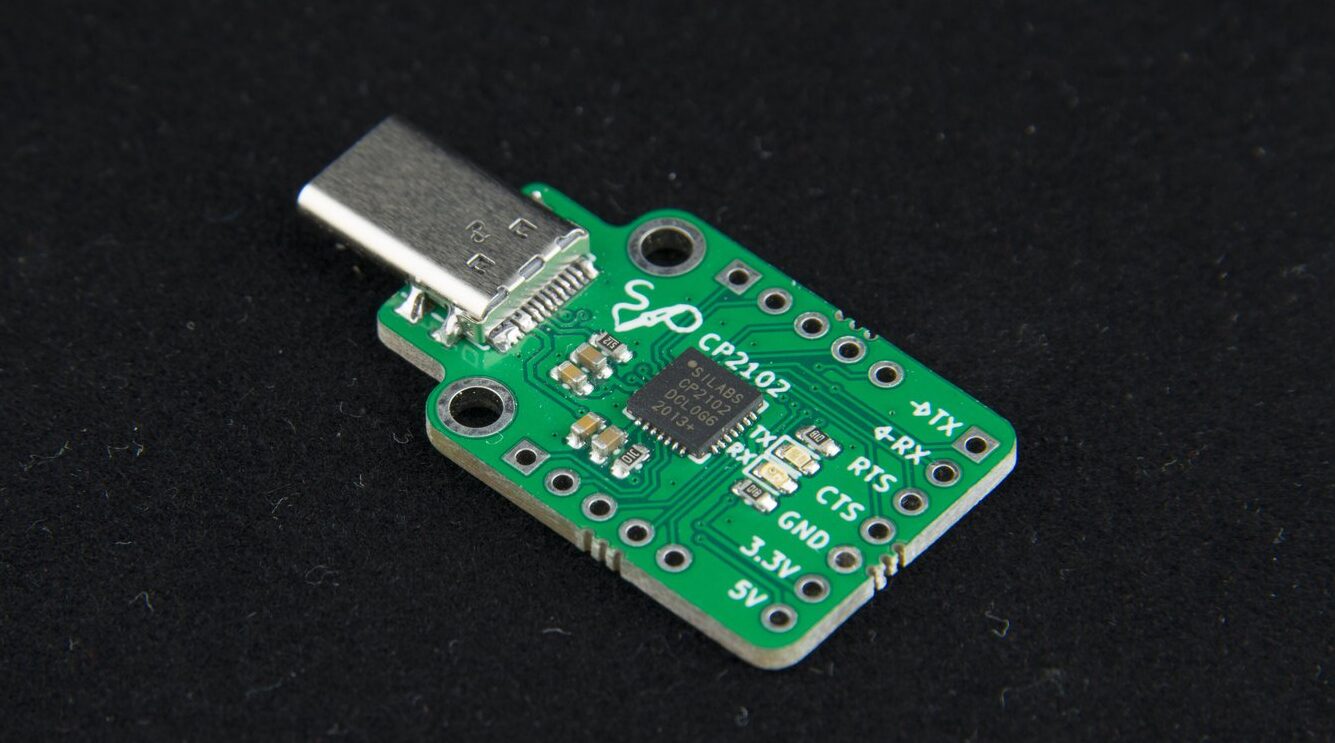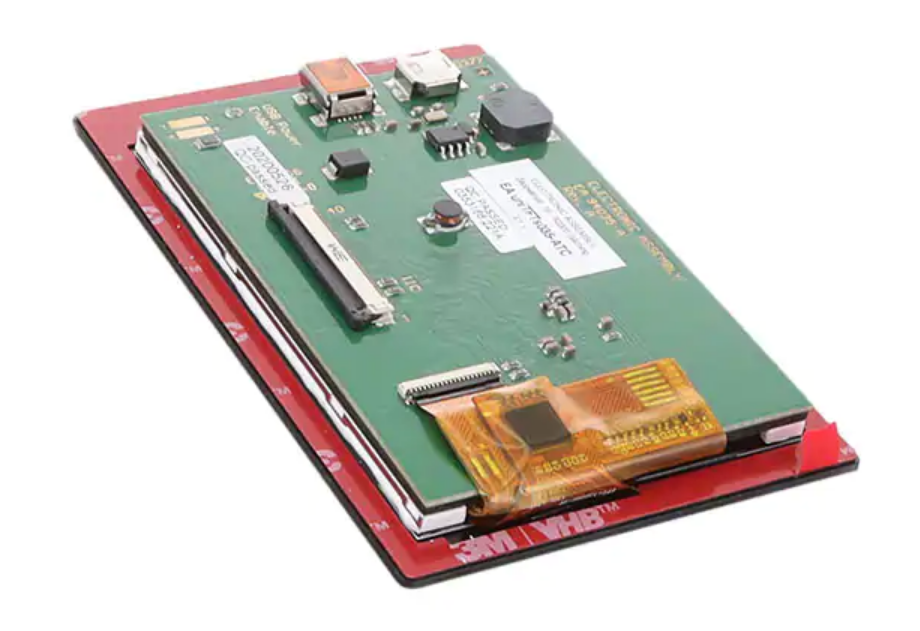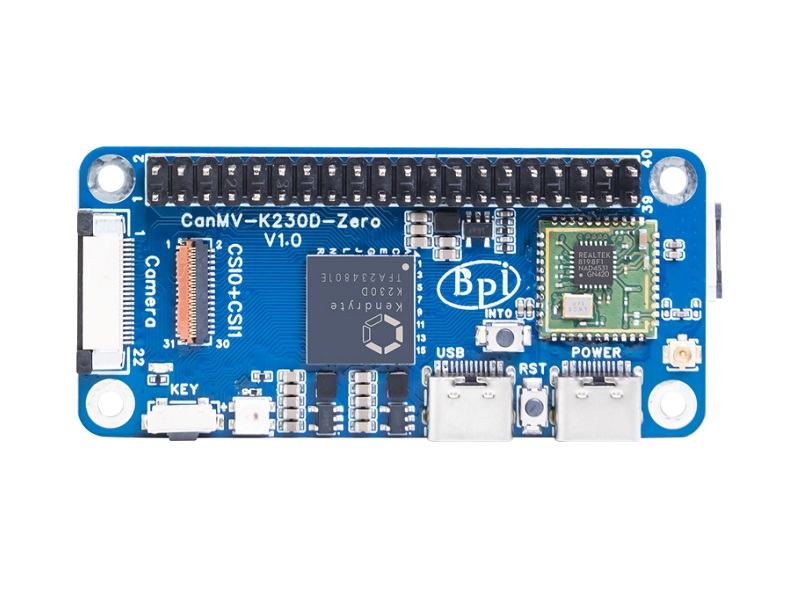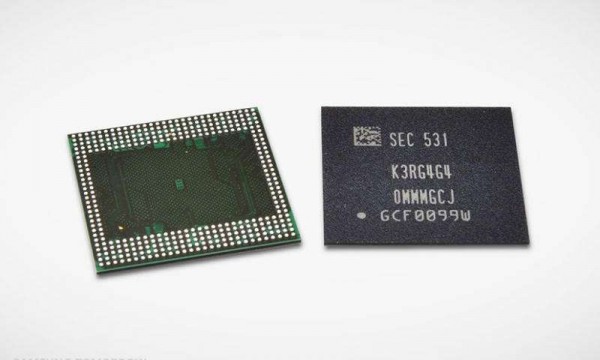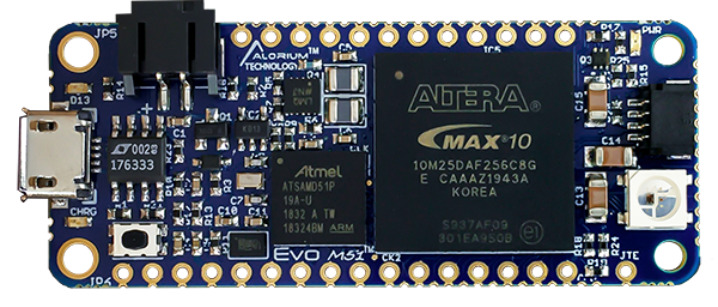
Evo M51 Compute module Features Atmel SAMD51 MCU with Intel MAX 10 FPGA
Alorium technology has unveiled its new Arduino compatible FPGA board called the Evo M51. We have seen other Arduino FPGA boards like the Arduino Zero, but the Evo M51 is a smaller Arduino compatible FPGA board. About the board, the company says:
“Evo M51 is the next step in the evolution of our FPGA-enhanced embedded microcontroller modules.”
The board features the 32-bit SAMD51 microcontroller as well as an Intel MAX 10 FPGA. Evo conforms to the Adafruit Feather specification for primary pinout, connectivity, and additional key features. The key features of the board include:
- Atmel SAMD51 32-bit ARM Cortex-M4 Micro
- Intel MAX 10 FPGA
- Feather Footprint
- Programmable with Arduino
- Designed for CircuitPython
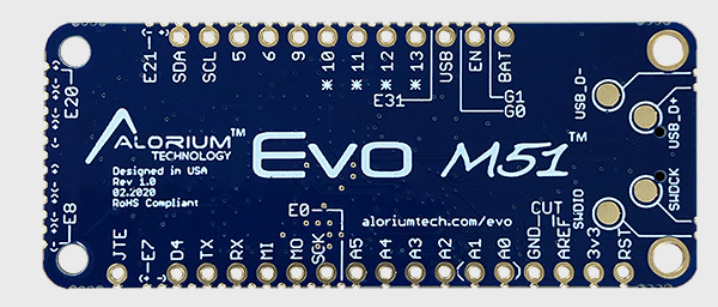
The 0.9 inches x 2.2 inches board features 55 Total Digital I/O, 21 Through-Hole/Castellated Vias, 34 Additional Castellated-Only, 6 Shared Digital with Analog Pins, 3.3V Inputs, 3.3V Outputs, and STEMMA QT (QWIIC Compatible) I2C. For analogue input, it offers 6 Analog Pins and 2 Analog Outputs. For memory, the board enables Program FLASH: 512 KB, Data Memory SRAM: 192 KB, and 2 MB Externa FLASH Memory. Misc feature includes a RGB LED. For power Supply, it offers 5V via micro USB or header, and also features a 2-pin battery header. The FPGA on Evo comes pre-programmed with an image that provides simple passthrough functionality.
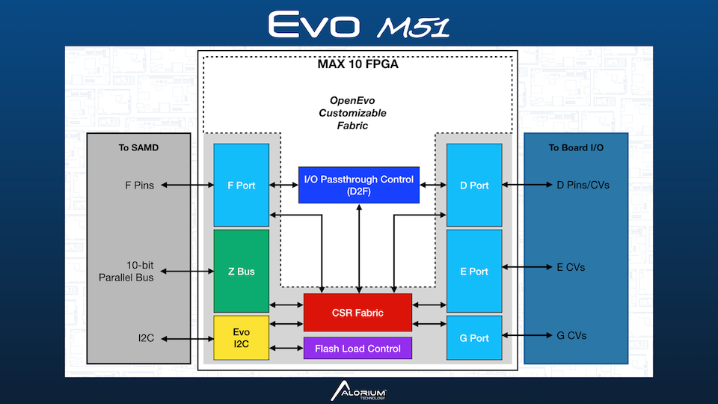
The company says In time, additional FPGA images with different functionality or new mixes of Xcelerator Blocks will be available. The images will be uploaded directly through the Arduino IDE or accessed via their GitHub repo and flashed to the FPGA using a command-line program. Just like their other products, the FPGA can be programmed with your own custom FPGA image by using Alorium’s OpenEvo FPGA methodology.
Evo M51 is designed to support CircuitPython – a special version of the Python programming language designed to run on microcontrollers. CircuitPython uses a slightly different development flow than programming standard C programs or Arduino sketches. The company says about the CircuitPython support “CircuitPyton is only partially supported at this time. Since the I/O on Evo is routed through the FPGA, additional code is required “under the covers” to appropriately configure the I/O on the FPGA to correspond with I/O settings on the SAMD51. In the Arduino world, we have handled this with libraries that abstract and hide the mechanics of this process, and we have started to implement similar support libraries for CircuitPython, as well. However, that effort is not complete. We’ll continue to update our docs and libraries as the developments mature.”
About production, Alorium Technology say:
“It was a good week for seeing progress toward Evo production! Our manufacturing flow is getting more and more refined, and the boards coming off the line are working great. Our engineering team is currently working hard on all the support SAMD code, libraries, FPGA logic, and other details so that Evo will be powerful and easy to use when it arrives at your doorstep!”
Evo M51 is available for $97. More details can be found on the product page and on the quick start page of Alorium Technology.





